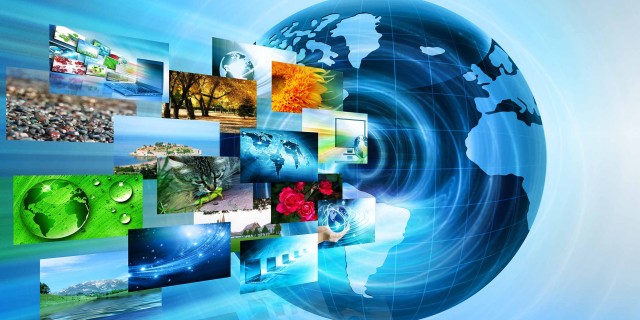Whether it’s helping businesses set an online presence to reach a larger audience or making Premier League predictions more accessible, technology and the internet continue to elevate hundreds of industries by transforming them into maximizing their full potential.
The entertainment industry is no exception to this. The industry has changed tremendously; we see this with how artists engage with fans, studios disseminate marketing content, and consumers interact with different content. Today, various media entities now have a social media and digital presence that’s helped enhance brand image and drive revenue.
In this article, we’ll take a deeper look into how digital media has helped shape the entertainment industry into what it is today.
Understanding Media And The Entertainment Industry
Digital media has restructured the film, music, publishing, and television industries. As a result, there’s now an on-demand mode for movies, TV shows, magazines, publications, newspapers, and books to be accessible on various interfaces and electronic devices.
 Because technology continues to transform how people run their lives in today’s world, people feel somewhat incapable of functioning without its influence. This is how digital media can bridge the gap between the entertainment industry and the population of people worldwide. Here’s a look at how technology continues to influence the entertainment industry.
Because technology continues to transform how people run their lives in today’s world, people feel somewhat incapable of functioning without its influence. This is how digital media can bridge the gap between the entertainment industry and the population of people worldwide. Here’s a look at how technology continues to influence the entertainment industry.
Music
Technology and the music industry have a very intricate relationship. With continued advancements, the public has seen changes like the following:
- An improvement in music quality
- Improved access to music
- Increased availability of streaming services like Milk Music, Spotify, and YouTube Music
- Several virtual platforms now showcasing independent and new musical talents in easier and more affordable ways
We started with compact discs, and then MP3 technology came into the picture, making it possible for us to download music online. But the growth didn’t stop there. Nowadays, the most recent technological success in the industry lies in innovative music composition. Here, software like virtual computerized instruments and MIDI technology helps musicians to create sounds in unique ways.
Television And Movies
Digital media has brought about video streaming services that allow movies and television industries to launch online thanks to blockchain and artificial intelligence to help them reach audiences across the globe.
Another technological advancement that’s taking the television and movie world by storm is voice recognition technology. This has created an opportunity for video streaming platforms to offer the best services through customized and personalized user experiences.
Gaming
The first computer game, Computer Space, was launched in 1972 by Nutting Associates. Since then, the video gaming industry has undergone tremendous changes. It started with arcade games launched in the 80s that came with problems like average-quality graphics and extreme buffering.
Today, players can enjoy games on their mobile devices, and with the advent of Augmented Reality and 3D Graphics, the gaming world offers players new and enjoyable experiences that are second to none.
Sports Betting
Thousands of sportsbooks are now flocking to 5G service for faster betting procedures. Whether you’re placing bets or looking to analyze Premier League picks, everything is now accessible within seconds. Additionally, you have AI and VR systems within sports betting that come with in-play betting and an AI-powered matches series that can attract bettors during off-seasons.
How Social Media Impacts Entertainment
Social media platforms play a significant role in the success of the entertainment industry. By looking at how platforms like Facebook, Instagram, Twitter, and other leading social media have changed the direction of entertainment, we can see the following:
- Improved engagement: Fans can connect with their favorite celebrities in real-time. Here, entertainers can use posts, comments, and their following to connect with their fans, promote specific events and brands, and establish open and enriched communication channels.
- Monetization: Launching creative work and content. Here, brands can reach out to influential people with a particular following to help them promote their brand, like when a specific platform would like to encourage a betting audience to check out their Premier League predictions today. This can also extend to spreading awareness about a particular cause.
- Democratization: Allowing celebrities to grow in their field without relying on various connections.
















